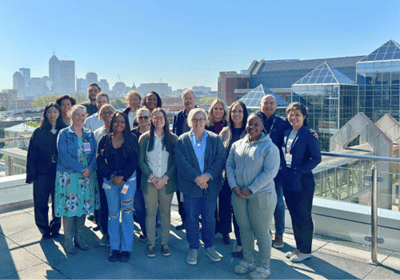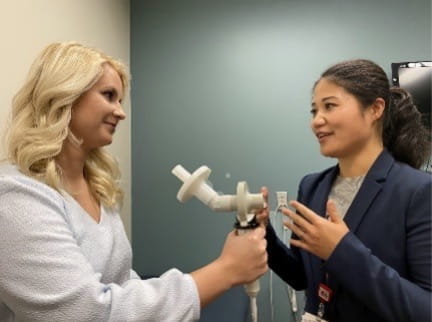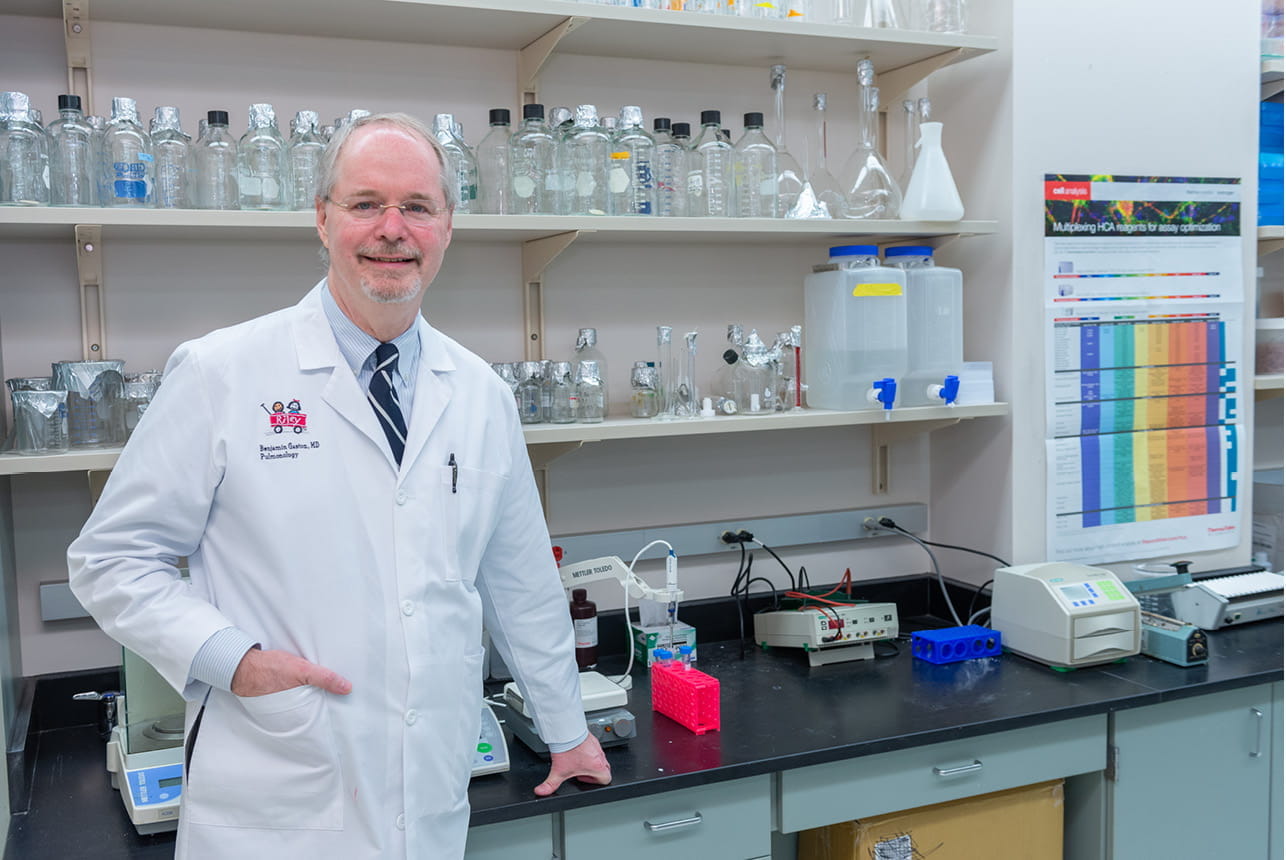
The Pediatric Translational Research program is focused on using lab discoveries to develop treatments and diagnostics that will help children and young adults in the clinical setting. These include respiratory conditions such as asthma, severe asthma, bronchopulmonary dysplasia, opioid-induced respiratory depression, primary ciliary dyskinesia, cystic fibrosis and aerodigestive disorders.
Members of this group and their colleagues have discovered exciting pathways leading to the development of several treatments and diagnostic modalities that are being evaluated for use in each of these areas. A few of these treatments and modalities have reached the clinical study phase of research, which includes adults as well.

